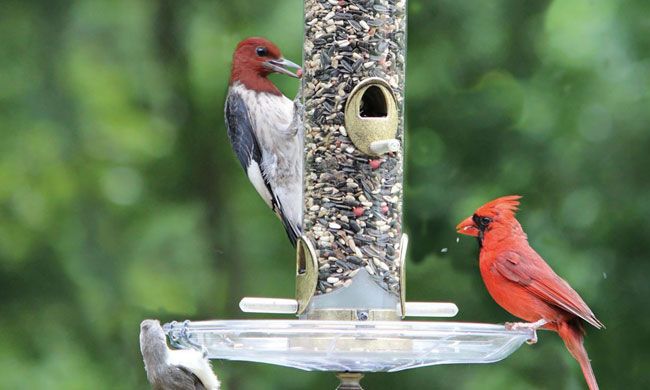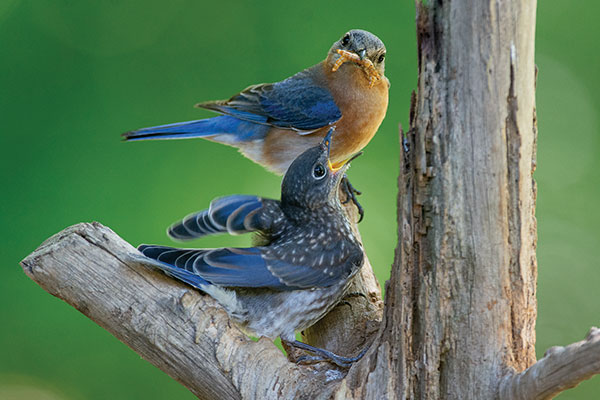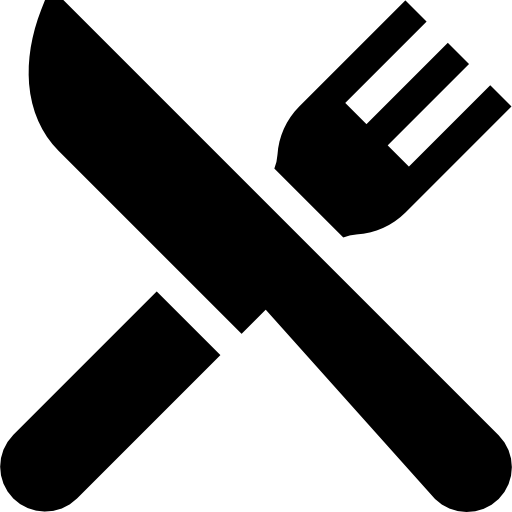
Why Wild Bird Lovers Should Choose Top-of-the-Crop Natural Feed: If you can't read it, don't feed it
Have you ever wondered what’s in your favorite packaged foods, grabbed a box from your pantry, read the ingredients and realized you still didn’t know what you’re eating? The ingredients in some processed foods can read like a chemist’s shopping list. Now imagine if backyard birds could read. What would they say about the ingredients in the food you feed them?
A growing number of Americans are choosing natural foods for their pets; nearly one-third say they prefer natural products, according to PetFoodIndustry.com. People who feed wild birds also want to know they’re feeding the most natural and nutritious options. It’s hard to be confident when reading the mystifying ingredient list on feed bags makes you feel like a bird brain.
With an abundance of options, ranging from commercial bird feeds to small-batch varieties, understanding the differences can help bird lovers make informed choices to meet wild birds’ nutritional needs while considering factors like sustainability and quality.
The wild bird experts at Cole’s Wild Bird Products, Co. offer these tips to ensure you’re feeding your feathered friends a healthy, natural diet.
 While commercial bird feeds aim to provide basic nutrition for birds, the quality and nutritional content can vary. Some mixes contain a high proportion of less desirable seeds and fillers, offering limited nutritional value.
While commercial bird feeds aim to provide basic nutrition for birds, the quality and nutritional content can vary. Some mixes contain a high proportion of less desirable seeds and fillers, offering limited nutritional value.
Small batch bird feeds prioritize nutritional content, using premium ingredients rich in essential nutrients, fats and proteins. This can provide birds with a more balanced diet, promoting overall health and vitality.
Avoid commercial bird feeds that are full of cheap fillers, such as red milo, millet, cracked corn, oats and wheat. Fillers lack nutritional value and birds will kick them right out of the feeder.
Instead, select small batch, natural feed comprised of top-of-the-crop seeds which contain no chemicals or mineral oil like Cole’s and bypass seed coated with them. Some commercial bird feeds are coated with mineral oil and mixed with crushed rock to add “vitamins.” Current regulations allow manufacturers to list nutritional components of mineral oil (iron, zinc) and crushed rock (vitamin A, calcium carbonate) separately, which can make the ingredients look more impressive. Mineral oil makes birdseed shiny and helps hide dirt and dust, and crushed rock adds weight to the product.
Take note of ingredients you can’t read; often it’s an indication the ingredient is synthetic or lab engineered. Ingredients like menadione sodium bisulfite complex and thiamine mononitrate aren’t found in natural foods; they’re man-made versions of vitamins. The rule of thumb for buying all-natural is “If you can't read it, don't feed it.”
Focus on serving feed with an ingredient list you can read and understand. For instance, Cole’s Sunflower Meats contains nothing but shelled sunflower seeds and White Millet contains 100% white millet. Super simple, right?
Study birds visiting your feeders and research feed they prefer or buy feed from a reputable company that’s done that work for you. For example, Cole’s offers select natural seed choices developed and based on research about what birds actually eat. Feed is specifically formulated to attract certain species of birds as well as the largest number of birds. No cheap filler seeds are used and seed is cleaned to ensure quality – no sticks and dirt. When you know and serve what backyard birds prefer, they’ll keep coming back for more.
Supplement seed with natural foods you have at home. For example, woodpeckers love raw peanuts, mockingbirds love fruit and chickadees savor suet. Soak raisins and currants in water overnight then serve or purchase blends with a dried fruit and nut mixture, like Nutberry suet. To attract orioles, skewer halved oranges on a spike near feeders.
Buy feed from companies specializing in wild bird food. Some offer bird feed as a side product of pet products or grass seed producers. Conversely, Cole’s exclusively produces and sells products for feeding backyard birds. Seeds are packaged like human food in “Harvest Fresh Lock” packaging so seeds don’t lose nutritional content or dry out and spoil.
To learn more about all-natural feed options with ingredients even birds could understand, visit coleswildbird.com.
Photos courtesy of Cole’s Wild Bird Products
Cole’s Wild Bird Seed






